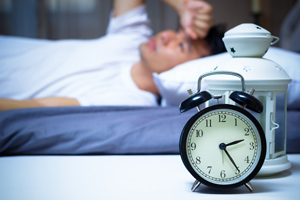How To Sleep Soundly During The Financial Crisis

It’s hard to remember a time when financial stress, fear and uncertainty filled the air as much as it does right now, and many people are losing sleep worrying about paying their household bills.
Even during the coronavirus pandemic some form of financial support was promised for the majority of people to help them through the endless lockdowns until normality returned. Not so this time, and things are already spiralling out of control for the majority who already feel like they’re trapped in a financial nightmare, unable to sleep.
Too many bills – not enough sleep
The UK governments efforts to help by limiting the cost of household energy bills was totally negated by the catastrophic consequences of their ‘mini-budget’ dramatically pushing up interest rates. Thanks to this, the ‘average’ family with a mortgage is now infinitely worse off financially than they were ever going to be due to the soaring cost of energy.
A palpable sense of anxiety has taken grip of the nation and the gloomy 24 hour news cycle about an impending world recession hardly helps ease everyone’s worries. The inability to keep warm, put food on the table, pay the mortgage and meet a pile of other financial commitments is now keeping millions of people awake at night worrying. And this is not good for your health.
Cycle of anxiety
Most of us experience the occasional night of sleeplessness without any severe consequences. It is when the occasional sleepless night becomes a pattern of several nights in a row that you know you have a sleeping problem. The fear of not being able to make ends meet has caused the number of people suffering from sleeplessness to rise sharply, so if you are experiencing changes to your usual sleeping pattern you are certainly not alone.
Feelings of anxiety prevent you from falling asleep as quickly as usual, and often you will awaken again after a short period of fitful sleep. Intense dreams and nightmares about your financial fears can cause you wake up in a state of panic, and the whole cycle starts again. Sleep disturbances like this interfere with physical, mental, and emotional functioning.
Sleep loss can affect your overall daily performance and can have a profound effect on your health, and if it continues for a long period of time it can cause problems with your relationships and your professional life. It can become an endless cycle of worry and anxieties as you continue to lose sleep every night.
It can help to understand the stages of sleeplessness, and these can be put into three main categories:
- “Initial” insomnia: where you have difficulty in falling asleep, generally taking 30 minutes or longer to fall into a sleep state.
- “Middle” insomnia: where after falling asleep you have problems maintaining a sleep state, often remaining awake until the early morning hours.
- “Late” or “Terminal” insomnia: where you awake early in the morning after less than 6 hours of sleep.
Take a natural approach
There are many traditional medicines and drugs that can help alleviate sleeplessness, but most of them have undesirable side-effects and can become addictive. Unless you suffer from a medical condition that requires your doctor’s intervention it’s much safer to take a natural approach to getting a good night’s sleep.
For example, when you go to bed try to deepen and lengthen your breathing patterns. Try to inhale for five seconds and then exhale for five seconds. You’ll be taking six breaths per minute. This takes a little practice but can work quite well to help put you to sleep, so it’s worth the effort.
Take a deep breath and hold it. As you are holding your breath tense up the muscles all over your entire body and hold both for 30 seconds. Exhale your breath and then completely relax. Take several relaxed breathes and repeat three more times. Your mind will begin to slow down, you’ll feel calmer, and soon will find yourself drifting into a deep and restful sleep.
Essential oils to help you sleep
As you probably already know, there are several essential oils that can help you get a good night’s sleep, and there are lots of easy ways to use them. Choose the method that suits you best, but be sure to try them all in case one way works better than another for you.
Bergamot, chamomile roman, clary sage, geranium, jasmine, sweet marjoram, neroli, sandalwood, ylang ylang – and of course, lavender, are all essential oils that can help you to drift into a peaceful and refreshing night’s sleep.
One of the best and easiest ways to use these essential oils is in a warm bath just before you go to bed. Run a nice warm bath and add just 6 to 8 drops in total of your chosen essential oils to the bath water, and then agitate the water well or use a Bath Dispersant to disperse the oils into the water evenly.
To supercharge your treatment add some essential oils to an aromatherapy diffuser in your bedroom after getting out of the bath. By the time you have dried yourself off and you’re ready to slip between the sheets, the relaxing aroma of the essential oils will have filled your bedroom. Practice the deep-breathing exercise above and together with the oils it will help you drift into a peaceful, pandemic-free slumber.
Alternatively, mix your chosen essential oils in a carrier oil and ask your partner to give you a mini-massage just before retiring to bed. The relaxing action of massage together with the essential oils encourages your body to relax, and slows down your heart rate, making it easier for you to drift into a deep, relaxing sleep.
If your symptoms of insomnia persist you must consult with your doctor as soon as possible to determine the exact cause of your problem.
Copyright © Quinessence Aromatherapy Ltd 2022. Written by Geoff Lyth

 If you prefer your essential oils ready-blended, try our
If you prefer your essential oils ready-blended, try our 















